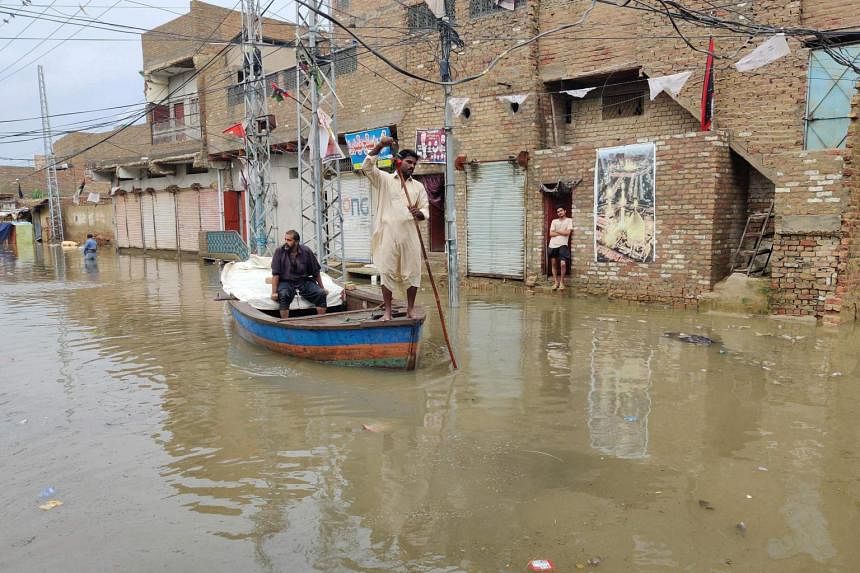ISLAMABAD (AFP) - Record monsoon rains are causing a "catastrophe of epic scale", Pakistan's climate change minister said on Wednesday (Aug 24), announcing an international appeal for help in dealing with floods that have killed more than 800 people since June.
The annual monsoon is essential for irrigating crops and replenishing lakes and dams across the Indian subcontinent, but each year it also brings a wave of destruction.
Heavy rain continued to pound much of Pakistan on Wednesday, with the authorities reporting more than a dozen deaths - including nine children - in the last 24 hours.
"It has been raining for a month now. There is nothing left," a woman named Khanzadi told AFP in badly hit Jaffarabad, Balochistan province.
"We had only one goat, that too drowned in the flood... Now we have nothing with us and we are lying along the road and facing hunger."
Climate change minister Sherry Rehman said the authorities would launch an appeal for international help once an assessment is complete.
"Given the scale of the disaster, there is no question of the provinces, or even Islamabad, being able to cope with this magnitude of climate catastrophe on their own," she told AFP.
"Lives are at risk, thousands homeless. It is important that international partners mobilise assistance."
Pakistan is eighth on a list of countries deemed most vulnerable to extreme weather caused by climate change, according to the Global Climate Risk Index compiled by environmental NGO Germanwatch.
From heatwave to flood
Earlier this year, much of the nation was in the grip of a heatwave, with temperatures hitting 51 deg C in Jacobabad, Sindh province.
The city is now grappling with floods that have inundated homes and swept away roads and bridges.
In Sukkur, about 75km away, volunteers are using boats along the flooded streets of the city to distribute food and fresh water to people trapped in their homes.
Mr Zaheer Ahmad Babar, a senior meteorological office official, told AFP that this year's rains were the heaviest since 2010.
That year, over 2,000 people died and more than two million were displaced by monsoon floods that covered nearly a fifth of the country.
Rainfall in Balochistan province is 430 per cent higher than normal, Mr Zaheer said, while Sindh was nearing 500 per cent.
The town of Padidan in Sindh had received over a metre of rain since Aug 1, he added.
"It is a climate catastrophe of epic scale," Ms Rehman said, adding three million people have been affected.
The National Disaster Management Authority said in a statement that nearly 125,000 homes have been destroyed and 288,000 more were damaged by the floods.
Some 700,000 livestock in Sindh and Balochistan have been killed, and nearly 809,000 hectares of farmland destroyed, officials added.
Nearly 3,000km of roads have also been damaged.

